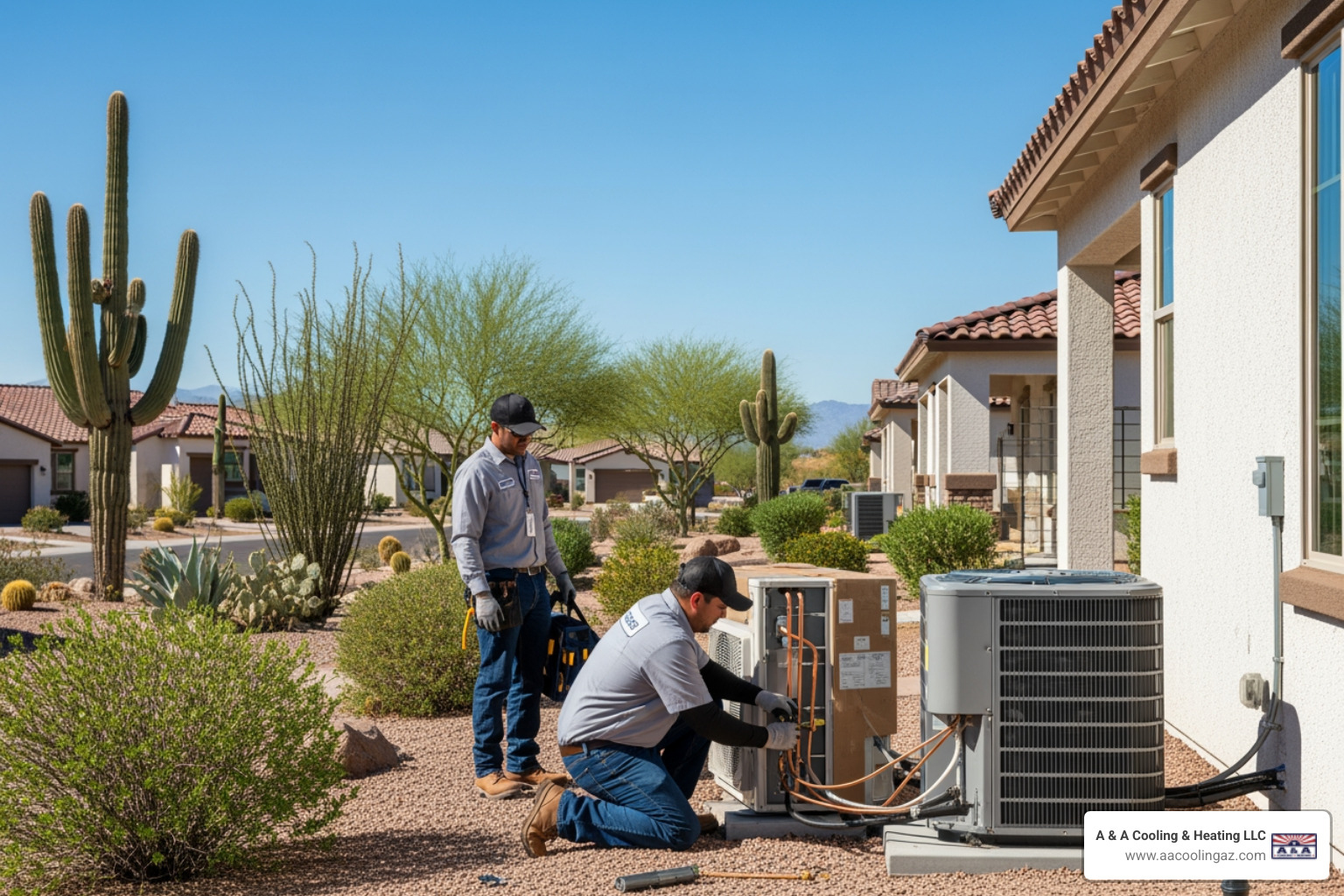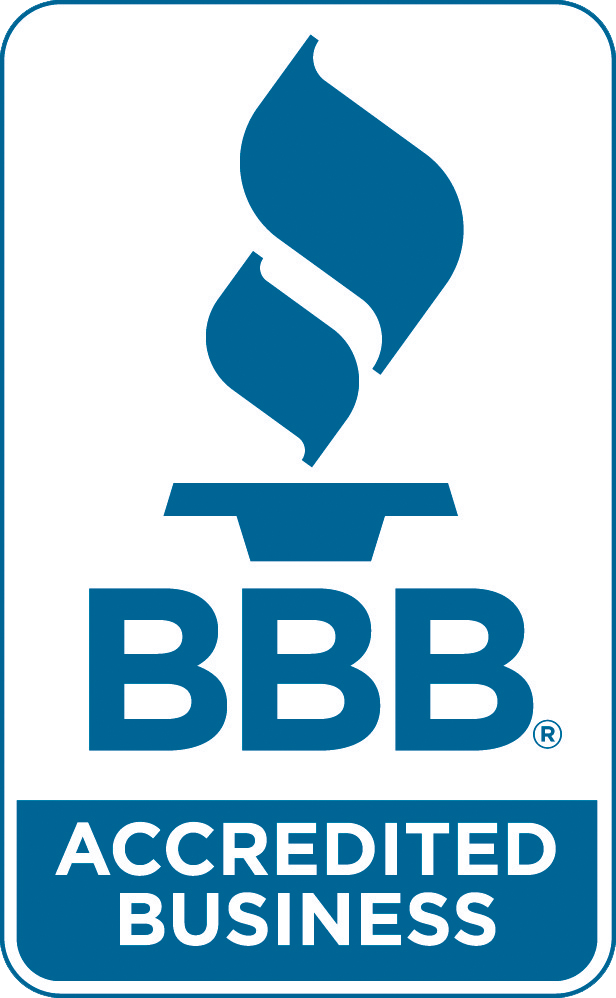Choosing the Best Commercial Heat Pump Company Near You
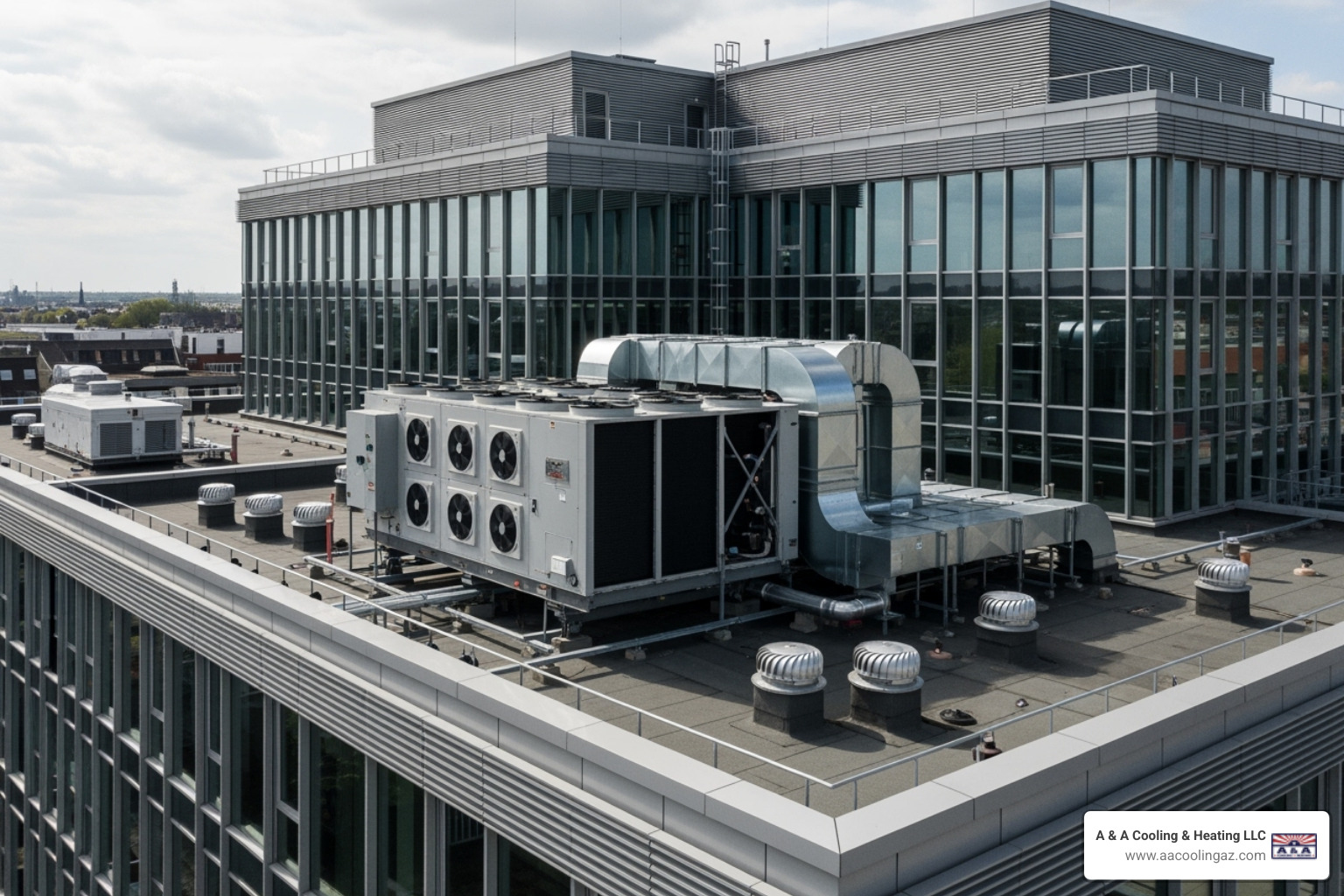
Why Commercial Heat Pump Installation Matters for Your Business
Commercial heat pump installation is changing how businesses approach climate control. For an efficient, cost-effective solution for your commercial property, here's what you need to know.
Quick Answer: What is Commercial Heat Pump Installation?
- All-in-One Solution: A single system for both heating and cooling that transfers heat rather than generating it.
- Energy Efficiency: Up to 3 times more efficient than traditional heating systems.
- Environmental Benefits: Reduces greenhouse gas emissions by eliminating fossil fuel use.
- Year-Round Comfort: Operates effectively in both hot summers and cold winters.
- Cost Savings: Lower operating costs through reduced energy consumption.
Heat pumps work by moving heat from one place to another using electricity. In summer, they extract heat from inside your building and release it outdoors. In winter, they reverse the process, pulling heat from the outdoor air or ground and transferring it indoors. This method of moving heat instead of creating it is the key to their efficiency.
Modern heat pumps perform reliably even in cold climates, making them a viable option for businesses across Arizona. With government incentives available to offset installation costs, many businesses are switching to reduce their carbon footprint and operating expenses. Understanding your options will help you make the best choice for your building's needs.
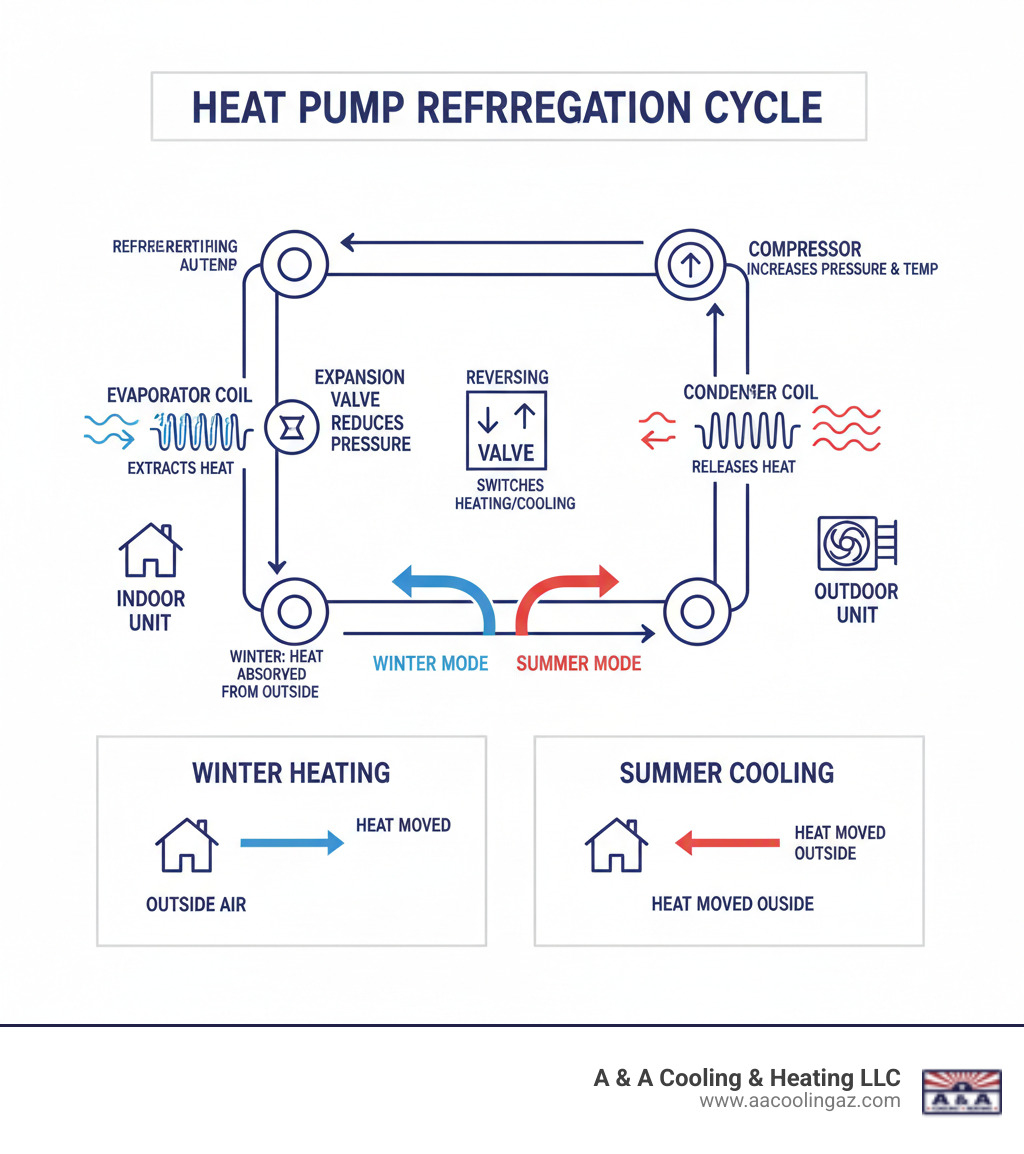
What is a Commercial Heat Pump and How Does It Work?
Your business doesn't need two separate systems for heating and cooling. A commercial heat pump handles both jobs with a single piece of equipment by simply moving heat from one place to another. In winter, it extracts heat from the outdoor air and brings it inside. In summer, it reverses direction, pulling heat from your building and releasing it outside.
This heat transfer occurs through a refrigeration cycle. A special refrigerant circulates through a closed loop, changing between liquid and gas states to absorb and release heat. A reversing valve changes the direction of refrigerant flow, allowing the system to switch between heating and cooling. This all-in-one electric system is far more efficient than traditional HVAC setups, helping businesses meet decarbonization goals.
More info about Commercial HVAC Services in Tempe, AZ
The Science of Moving Heat vs. Creating It
Moving heat is much smarter than creating it. A traditional furnace loses significant energy during combustion, meaning you pay for energy you don't use. Heat pumps, however, transfer existing heat rather than generating it. This allows them to deliver more heating or cooling energy than the electricity they consume.
This efficiency is measured by the Coefficient of Performance (COP). A heat pump with a COP of 3 delivers three units of heat for every one unit of electricity used. Modern commercial heat pumps often achieve COPs between 3 and 5, making them 300-500% efficient. This remarkable energy efficiency translates directly into lower utility bills and a smaller carbon footprint, supporting your budget and environmental sustainability goals through reduced emissions.
A government guide on heat pumps
Enhancing Building Comfort and Air Quality
Commercial heat pump installation offers benefits beyond basic heating and cooling. By continuously circulating air, they maintain consistent temperatures and eliminate hot and cold spots. In cooling mode, heat pumps also provide dehumidification, making your space feel more comfortable and preventing moisture-related issues like mold.
Most systems include advanced air filtration to remove dust, allergens, and other contaminants, improving indoor air quality. Certain heat pump types also allow for zoned comfort, letting you set different temperatures in different areas of your building. As a bonus, their quiet operation (typically 40-60 decibels) creates a more peaceful and productive work environment.
More info about Commercial HVAC Contractors in Tempe, AZ
Types of Commercial Heat Pumps for Your Business
Choosing the right heat pump is crucial for a successful commercial heat pump installation. The best system depends on your building's size, climate, and specific needs. Let's review the main options.
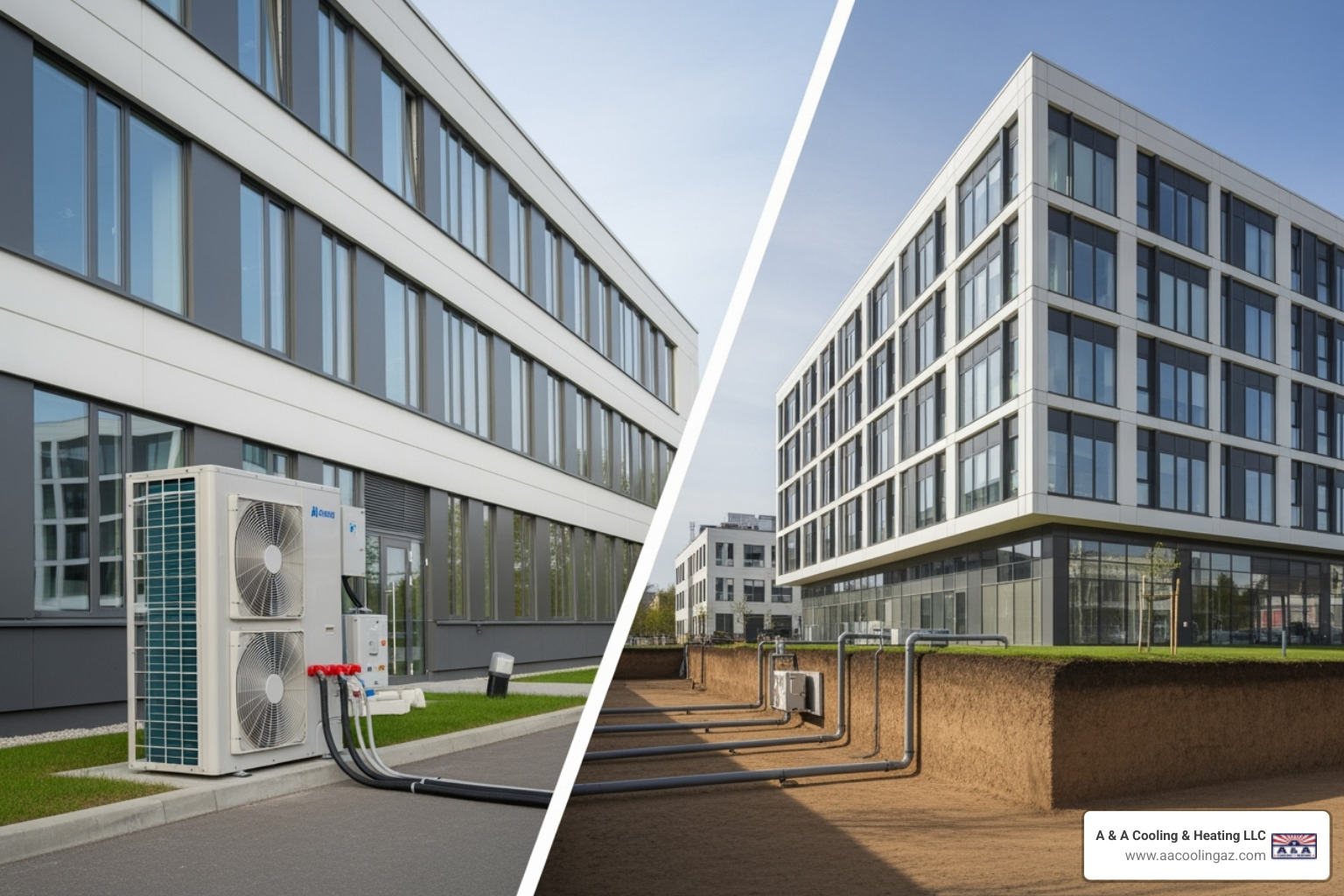
| Feature | Air-Source Heat Pump (ASHP) | Ground-Source Heat Pump (GSHP) | Variable Refrigerant Flow (VRF) System |
|---|---|---|---|
| Heat Source/Sink | Outdoor Air | Earth/Ground | Outdoor Air (or Ground for some VRF) |
| Efficiency | High (up to 300-400% in moderate climates) | Very High (consistent performance due to stable ground temps) | Very High (zoned control, heat recovery) |
| Installation | Easier, less invasive (outdoor unit) | More complex, requires ground loops (drilling/trenching) | Complex (multiple indoor units, refrigerant piping) |
| Cost | Lower initial cost | Higher initial cost | Moderate to High initial cost |
| Performance in Cold Climates | Excellent with Cold Climate ASHP (ccASHP) technology | Consistent, less affected by ambient air temperature | Excellent, especially with heat recovery and dedicated cold climate models |
| Versatility | Rooftop units, split systems, ductless mini-splits | Whole-building heating/cooling, water heating | Zoned comfort, simultaneous heating/cooling, diverse indoor unit types |
| Best For | Wide range of commercial buildings, retrofits, light commercial | New construction, large facilities, long-term ROI focus | Large commercial buildings, hotels, offices with diverse needs |
Air-Source Heat Pumps (ASHP)
Air-source heat pumps are popular because they are relatively straightforward to install. They extract heat from the outdoor air in winter and reject heat to the outdoor air in summer. Common configurations include rooftop units for all-in-one heating and cooling, split systems with connected indoor and outdoor units, and ductless mini-splits for spaces where adding ductwork is impractical. This flexibility makes ASHPs adaptable to nearly any commercial property.
More info about Commercial AC Repair Service in Tempe, AZ
Ground-Source (Geothermal) Heat Pumps (GSHP)
Ground-source heat pumps use the stable temperature of the earth for heat exchange. A network of underground pipes, or geothermal loops, circulates a fluid that absorbs heat from the ground in winter and releases heat into it in summer. Because the ground temperature is constant, GSHPs are exceptionally efficient and perform consistently year-round. While the commercial heat pump installation is more complex and costly due to the need for drilling or trenching, the long-term energy savings and system lifespan (25+ years) offer a significant return on investment.
More info about Commercial HVAC Services in Gold Canyon, AZ
Variable Refrigerant Flow (VRF) Systems
VRF systems are a high-tech solution for large buildings with diverse needs. They vary the refrigerant flow to multiple indoor units, allowing for precise temperature control in different zones. Many VRF systems can provide simultaneous heating and cooling, moving waste heat from a cooled area to one that needs warming. This heat recovery capability dramatically boosts efficiency. VRF is ideal for hotels, office complexes, and schools where personalized comfort is a priority.
More info about Commercial HVAC Companies in Apache Junction, AZ
Key Factors for Your Commercial Heat Pump Installation
A successful commercial heat pump installation requires careful planning. Every commercial building is unique, and a one-size-fits-all approach won't deliver the efficiency or comfort you expect. A thorough site assessment and meticulous system design are the foundation of a solution that will serve your business for years.
More info about Commercial HVAC Replacement in Apache Junction, AZ
Sizing and Site Prep for Your Commercial Heat Pump Installation
Proper sizing is critical. An undersized unit will run constantly without reaching the target temperature, while an oversized unit will cycle on and off too frequently, reducing efficiency and causing humidity issues. A professional load calculation is essential. This analysis considers your building's size, layout, insulation, window type and orientation, occupancy, internal heat from equipment, and local climate.
Proper site preparation is also key. This involves ensuring adequate space and clearance for outdoor units, planning efficient routes for refrigerant lines and ductwork, and evaluating any existing ductwork for necessary modifications. Finally, setting up the control system with programmable schedules and remote monitoring gives you full control over your system's performance.
Performance in Different Climates
Modern heat pumps have overcome the limitations of older models. Today's cold climate air-source heat pumps are engineered to efficiently extract heat from outdoor air even when temperatures are well below freezing. For regions with extreme cold, a hybrid system offers a great solution. The heat pump handles most of the heating, with a backup furnace providing assistance on the coldest days. This approach optimizes energy use while ensuring comfort. Systems also include an automatic defrost cycle to melt any ice buildup on the outdoor coil, ensuring reliable operation without any intervention from you. Research confirms that heat pumps are often the lowest-cost way to heat most buildings over their lifetime, even in cold climates.
Navigating Challenges in Commercial Heat Pump Installation
While commercial heat pump installation has immense benefits, it requires navigating a few challenges. Finding qualified installers with specialized knowledge in refrigeration, electrical systems, and HVAC design is the most important factor for success. Professional installation ensures your system meets building codes and operates at peak efficiency.
Integrating the system into an existing building also requires planning. Your electrical system may need an upgrade to support the heat pump's power requirements, and existing ductwork might need adjustments to optimize airflow. A thorough site assessment by an experienced team can identify these integration points early, ensuring a smooth installation process and preventing surprises.
More info about Commercial HVAC Repair in Apache Junction, AZ
Long-Term System Benefits and Ongoing Care
A commercial heat pump installation is a long-term investment in your business's operational savings and environmental goals. A well-installed and maintained system provides reliable, efficient performance for many years, positioning your property to meet future energy standards.
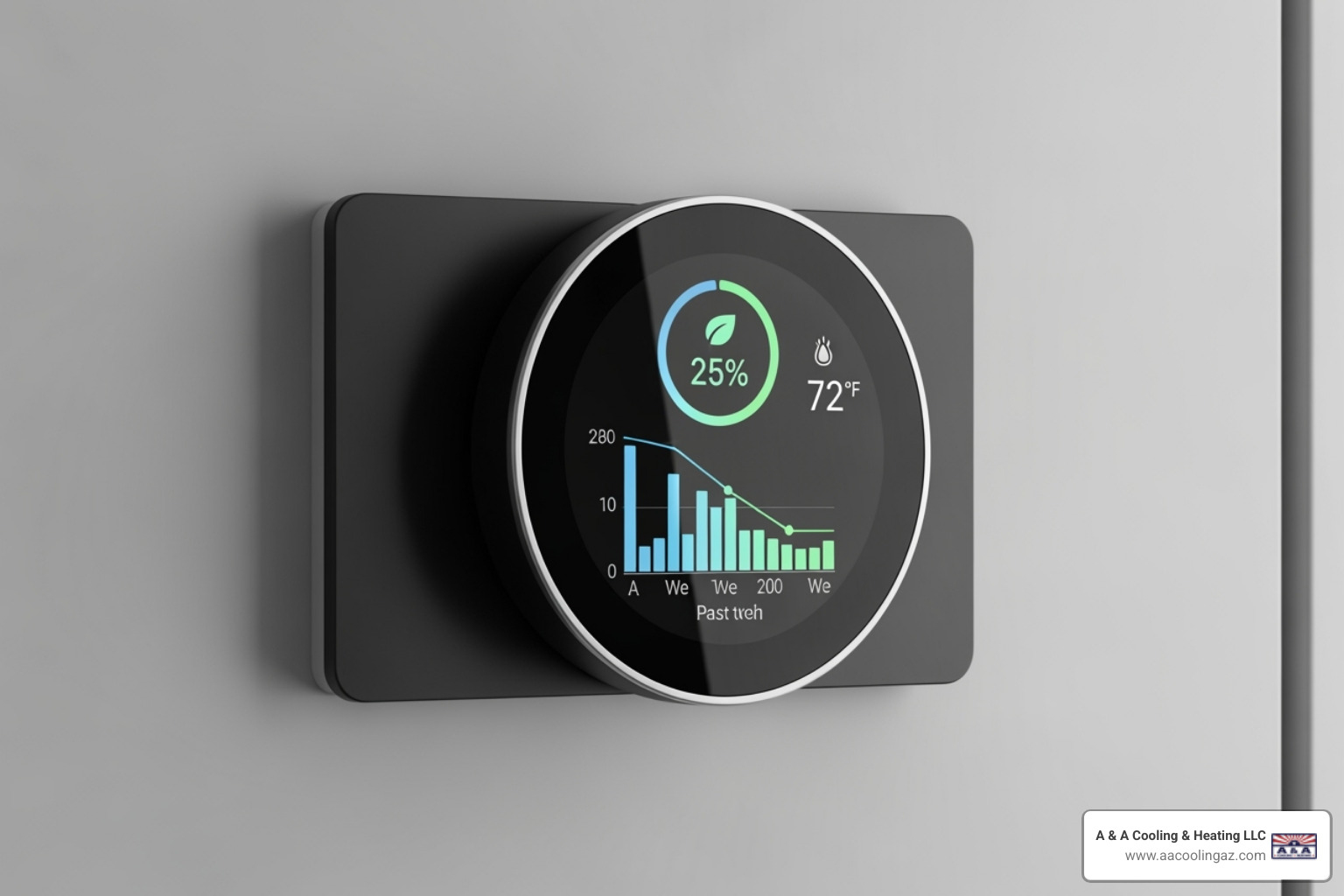
The longevity of your heat pump depends on the quality of the initial installation and consistent maintenance. Just like a vehicle, it requires regular care to perform optimally for its full lifespan.
More info about Commercial Heater in Apache Junction, AZ
Maximizing Lifespan with Proper Maintenance
A properly maintained commercial heat pump can last 15 to 20 years. This longevity is the direct result of consistent professional care. Without it, systems suffer from declining efficiency, more frequent breakdowns, and a shorter operational life.
Key maintenance tasks include:
- Regular Inspections: Annual checks by a trained professional to spot issues early.
- Filter Changes: Critical for maintaining optimal airflow and efficiency.
- Coil Cleaning: Removing dirt buildup from evaporator and condenser coils to ensure proper heat transfer.
- Refrigerant Level Checks: Ensuring correct levels to prevent damage and performance loss.
- Ductwork and Vent Inspections: Sealing leaks to prevent wasted energy.
This proactive care keeps your system running at peak efficiency, lowering energy bills and preventing costly, unexpected repairs.
More info about Commercial AC Repair in San Tan Valley, AZ
Meeting Evolving Building Codes and Regulations
Building codes are rapidly moving toward electrification and away from fossil fuels. By choosing a commercial heat pump installation, you are future-proofing your property and ensuring compliance with modern energy efficiency standards. This helps you reduce your carbon footprint in a measurable way.
Furthermore, government incentives, tax credits, and rebates are often available to help offset the initial investment. Exploring these opportunities, such as federal and provincial incentives, can make the switch to a heat pump both environmentally responsible and financially smart. Investing in this technology today keeps you ahead of regulatory changes while you enjoy lower operating costs.
Frequently Asked Questions about Commercial Heat Pumps
Upgrading your commercial HVAC system is a big decision. As specialists in the Apache Junction area since 1976, we've answered many questions about commercial heat pump installation. Here are some of the most common.
What is the typical lifespan of a commercial heat pump?
A commercial heat pump's lifespan is typically 15 to 20 years. However, this depends heavily on the quality of the initial installation, the consistency of professional maintenance, and overall usage patterns. Proactive care is the best way to extend your system's operational life.
Can a heat pump be installed in an older commercial building?
Yes. Heat pumps are versatile and can be retrofitted into older buildings. The process might involve modifications to existing ductwork or electrical systems, but these are manageable challenges. For buildings without ducts, ductless mini-split systems are an excellent solution. A professional assessment is crucial to determine the best approach for your property.
How does a heat pump provide both heating and cooling?
A heat pump uses a component called a reversing valve to switch the direction of its refrigerant flow. In summer, it acts like an air conditioner, extracting heat from your indoor air and moving it outside. In winter, the valve reverses the flow, allowing the system to extract ambient heat from the outside air or ground and transfer it inside to warm your space. It's one system that provides year-round comfort by simply moving heat where it's needed.
Your Partner for Efficient Commercial Comfort
Choosing to upgrade your commercial HVAC system is a significant investment in your business's future. With a clear understanding of how heat pumps work and what a quality installation entails, you can make an informed decision that will deliver value for years.
At A & A Cooling & Heating LLC, we've provided expert HVAC services to businesses in Apache Junction and the surrounding area since 1976. We don't use one-size-fits-all solutions; our approach to commercial heat pump installation is customized to your property's unique needs. As a family-owned business, we focus on building long-term relationships and delivering reliable results.
Our flexible financing options and Cool Club maintenance plan make it easier to invest in and protect your new high-efficiency system. The shift to cleaner heating and cooling is a smart business decision that lowers energy bills, improves comfort, and prepares your property for the future. With available government incentives, there has never been a better time to make the switch.
Ready to explore how a heat pump can transform your commercial space? Our experienced team is here to guide you. Let's work together to find the perfect solution for your business.









